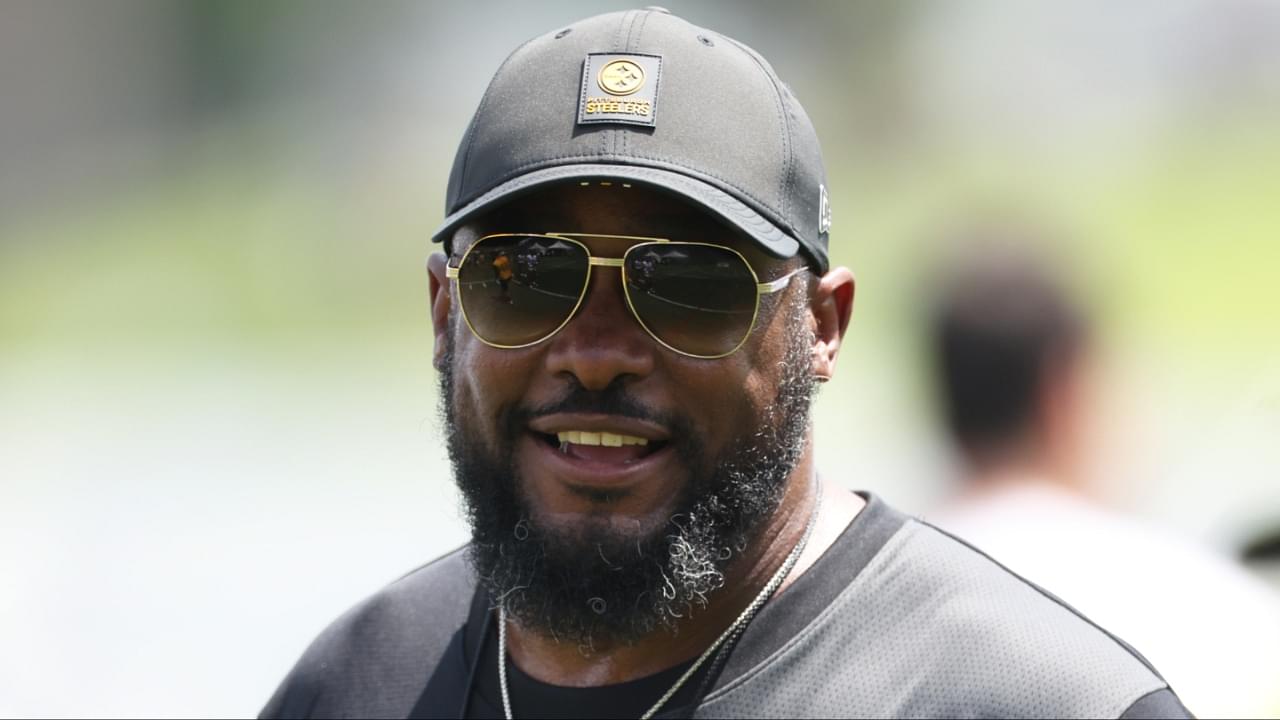For nearly two decades, Mike Tomlin has been the steadfast leader of the Pittsburgh Steelers, a tenure that might suggest a comprehensive public understanding of the veteran coach. Yet, despite his prominent position within one of the NFL’s most iconic franchises, Tomlin has meticulously maintained a private persona, offering few glimpses into his life beyond the football field. This inherent guardedness has long been a defining characteristic, making any deviation from it a rare and noteworthy event.
Tomlin’s reputation for keeping matters close to the vest is well-established, a trend that predates his arrival in Pittsburgh and which he has diligently upheld. His media appearances are infrequent, and even when he does engage with reporters, he masterfully employs what has become known as “Tomlinisms” – insightful yet often evasive remarks that convey little actionable information. This strategic communication style has solidified his image as a shrewd and private figure within the league.
However, a recent interview with ESPN’s Kevin Clark offered an unexpected departure from this pattern. Clark, fortunate to encounter Tomlin in a rare relaxed moment, managed to elicit revelations that provided unprecedented insight into the coach’s off-field pursuits. This candid conversation transcended typical football discussions, delving into a surprisingly personal aspect of the highly respected NFL coach’s life.
During the interview, Tomlin unveiled a profound affinity for “mind stimulation,” revealing his passion for various puzzles. He specifically mentioned being “a big Sudoku guy,” alongside an enjoyment of crossword puzzles and spider solitaire. This daily engagement with brain-teasing activities forms a significant component of his routine, highlighting a facet of his personality rarely discussed publicly.
Tomlin elaborated on the origins of this secret hobby, tracing it back to his childhood. He recalled spirited contests with his mother over daily newspaper crossword puzzles, a practice that ignited his competitive spirit from a young age. The early exposure to these intellectual challenges clearly fostered a deep-seated enjoyment and a persistent drive for mental engagement that continues to this day.
Beyond his intellectual pursuits, Tomlin’s unusual candor extended to a surprising confession about a past coaching regret. When pressed on a play he wished he could reclaim, rather than his typical forward-looking stance, he offered a detailed and honest account. This willingness to revisit a moment of professional setback underscored the unique openness displayed during this particular interview.
The specific play in question dated back to his early coaching days as a unit leader at Arkansas State, facing the University of Minnesota. Tomlin vividly recounted the opening kickoff of that game, where his special teams unit surrendered a touchdown return. This stinging memory, involving Tyrone Carter, remained remarkably clear in his mind, serving as a powerful, lingering reminder of a challenging start to his coaching career.
The enduring nature of this memory was further emphasized by a humorous twist of fate: approximately a decade later, Tomlin had the opportunity to coach Tyrone Carter again when Carter joined the Steelers. During their time together, Carter would periodically remind Tomlin of that infamous kickoff return, ensuring the play’s impact on the esteemed coach remained a vivid, if slightly painful, memory.






Leave a Reply